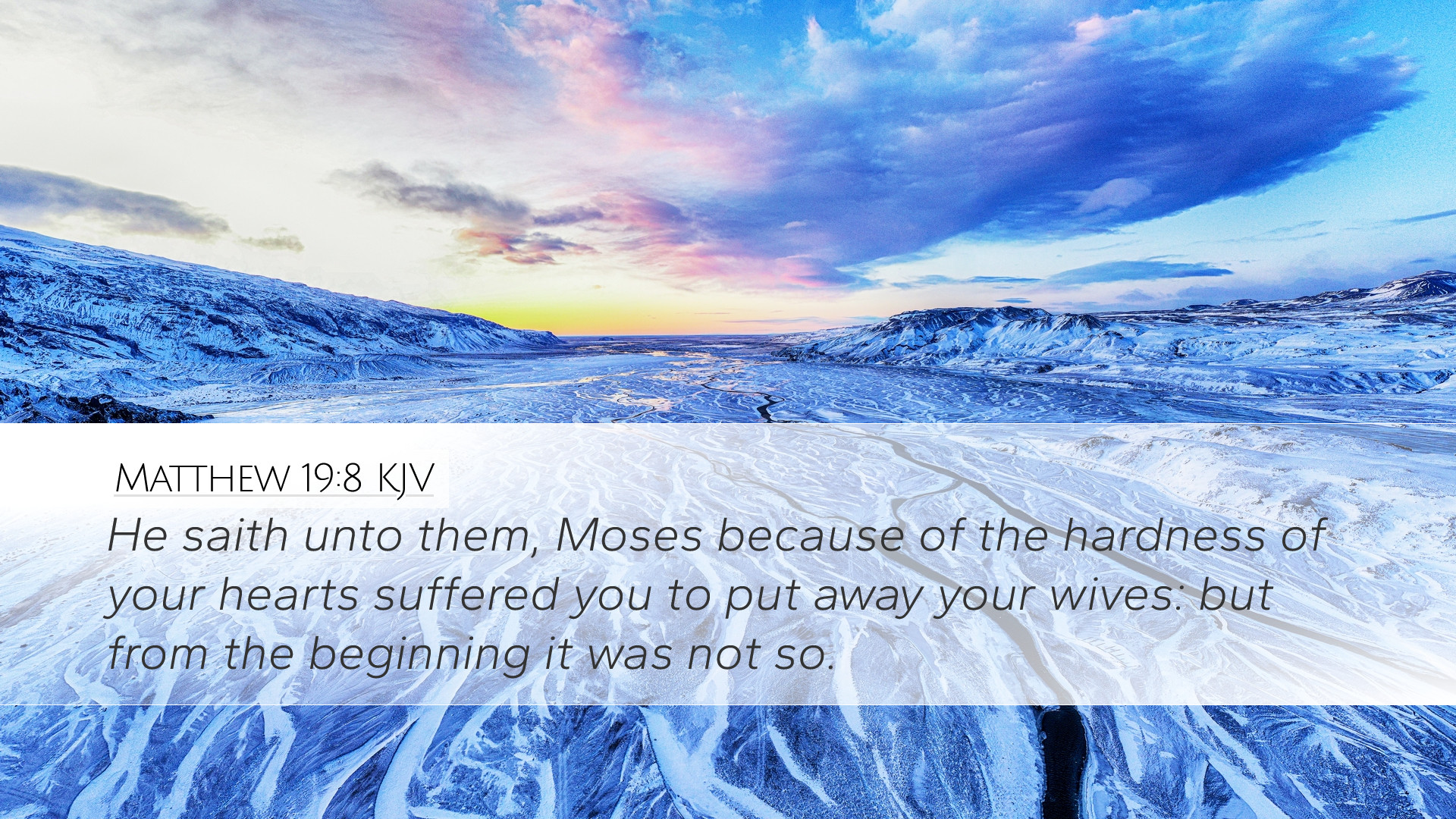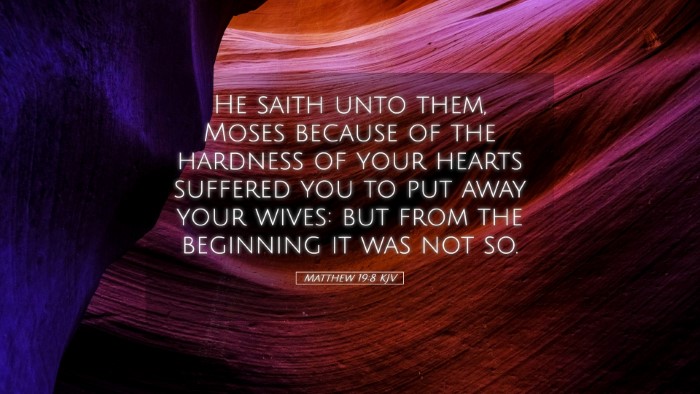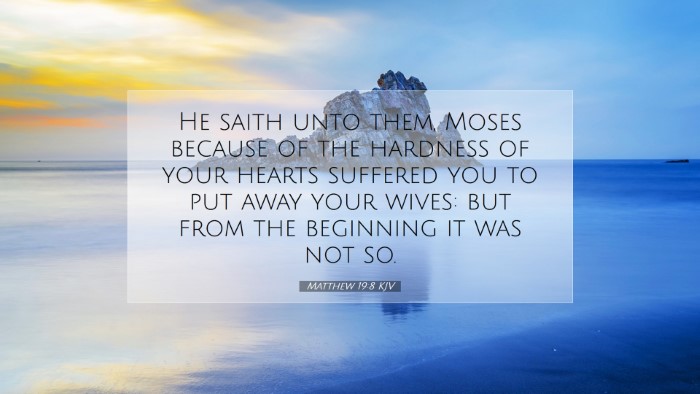Commentary on Matthew 19:8
Matthew 19:8 states: "He said to them, 'Moses, because of the hardness of your hearts, permitted you to divorce your wives; but from the beginning, it was not so.' This verse is part of a larger discourse where Jesus addresses the Pharisees' questions about divorce, drawing from Mosaic Law and the creation narrative in Genesis.
Understanding the Context
This verse occurs within a dialogue that illustrates the contrasting views on divorce during Jesus' time. The Pharisees sought to entrap Him by referencing Moses' allowance for divorce (Deuteronomy 24:1-4). Jesus responds by redirecting their attention to God's original intent for marriage.
Insights from Thomas Manton
Manton emphasizes that the permission granted by Moses was a concession to human weakness rather than a divine endorsement of divorce. He argues that the phrase "hardness of your hearts" indicates a spiritual condition within humanity that necessitated this concession. Manton advocates for a return to the original design of marriage, which is characterized by permanence and fidelity.
Matthew Henry's Perspective
According to Matthew Henry, this passage reveals God's desire for an enduring union between husband and wife. He interprets Jesus' reference to the "beginning" as an appeal to the creation narrative where God instituted marriage, highlighting its inviolability. Henry notes the tragic consequences of divorce: it introduces disorder into families and society.
Albert Barnes on Harshness
Barnes draws attention to the term "hardness of your hearts", suggesting that it reflects a refusal to adhere to God's will. He asserts that Moses allowed divorce not because it was ideal, but to prevent greater evils arising from the unchecked behavior of individuals. He underscores that while the allowance was radical for the time, it did not reflect God's perfect will.
Adam Clarke: Implications for Marriage Today
Adam Clarke expands on the implications of this passage for contemporary audiences. He contends that the principle extended by Jesus emphasizes the sanctity of marriage and the necessity of commitment. Clarke challenges believers to grasp the gravity of marital vows, framing them as a covenant reflective of God's relationship with His people.
Theological Implications
In examining Matthew 19:8, several theological principles arise:
- The Nature of Divine Law: The verse indicates that human law must align with God’s original design, and deviations due to human frailty should lead to repentance and restoration, not justification.
- The Essence of Marriage: The idea that marriage is a covenant rather than merely a contract is vital. God's intention for marriage is a lifelong commitment, illustrating His faithfulness to humanity.
- Redemption and Restoration: By acknowledging the hardness of heart, this verse serves as a paradigm for compassion and understanding. Jesus' words offer hope that God can restore even the most broken relationships.
Pastoral Application
For pastors and church leaders, Matthew 19:8 holds significant pastoral implications:
- Preaching on the Sanctity of Marriage: This passage can be employed to reaffirm the church’s understanding of marriage as a lifelong covenant.
- Providing Counsel: Understanding the underlying conditions of interpersonal struggles allows pastors to guide individuals in seeking healing and restoration rather than quick resolutions.
- Encouraging Reflection on God's Heart: Leaders should encourage congregants to emulate God's faithfulness and consider the weight of their promises in marriage.
Conclusion
Matthew 19:8 succinctly encapsulates the tension between Mosaic Law and the divine intention for marriage. It serves as a reminder that while divine principles stand eternal, human conditions often cloud our understanding and practice of those principles. The call to return to God's original design for marriage remains ever relevant, calling us to seek His grace in navigating the complexities of our relationships.


